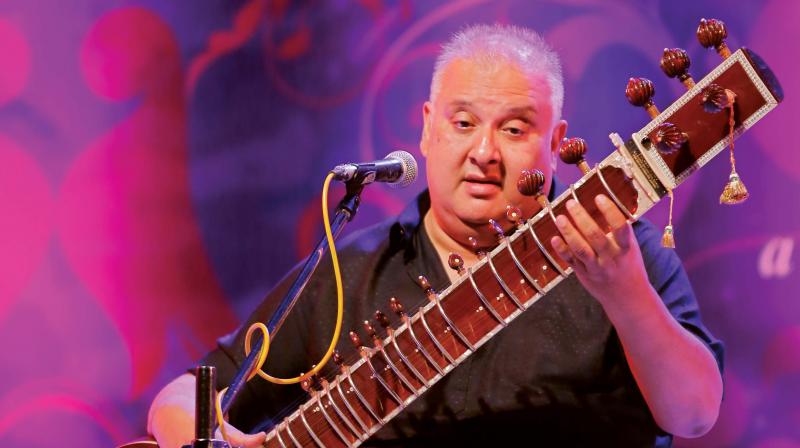Classical music has never been about fame: Ustad Shujaat Khan

Sung at different times of the day, month or year to express the many-hued experience of being alive, understanding the ragas takes diligence and patience in equal measure. Spending a day studying the ancient art form seems unlikely in today's fast-paced world, but Teen Prahar makes it possible anyway. Sitar exponent Ustad Shujaat Khan, who will headline this annual festival, says, "The festival doesn't just showcase ragas that symbolise different moods. It's a medley of classical music from across the country.
The 55-year-old, a Grammy Award nominee for Best World Music Album in 2004 has been with the festival for ten years. "There is something for everyone, if you can keep an open mind," he says and he couldn't be far from the truth. The line up includes maestros like Khan on sitar, Rakesh Chaurasia, nephew and disciple of the legendary Hariprasad Chaurasia on the flute, Padmashree awardee Pandit Venkatesh Kumar and Pandit Bhawani Shankar on the pakhawaj. But it isn't just a celebration of the accomplished, he adds. "There are two young budding artists, 10 and 12 years old respectively, who will begin the concert."
The youth might seem to choose the contemporary over the traditional but Indian classical still holds its ground, says Khan confidently. "Classical music has never been about the pursuit of fame. Those who find pleasure in it will come looking for it. It's a painful journey for some, but those who find peace in it walk all the way," said Ustad Khan, referring nostalgically to his own journey.
A sitar player of the Imdadkhani gharana Ustad Shujaat Khan hails from a musical pedigree that goes back seven generations. He began training training at the age of three, performing for the first time at the of six! By the age of 12, he was grappling for an individual identity. "I came from a family of well established musician so perhaps it was meant to be." Khan's father, sitar player Ustad Vilayat Khan, is considered a pioneer in introducing Indian classical music to the west. "I was always known as my father's son and as I grew up I realized I had a very different train of thought and ideas when it came to music," he says, "It was quite heartbreaking."
Khan is known for his impromptu performances on stage and this concert will be no different, he says excitedly. "I don't believe in playlists!" he laughs, "I want to sense the mood at the venue, the energy that it gives me and present the audience with a spontaneous flow of art."

